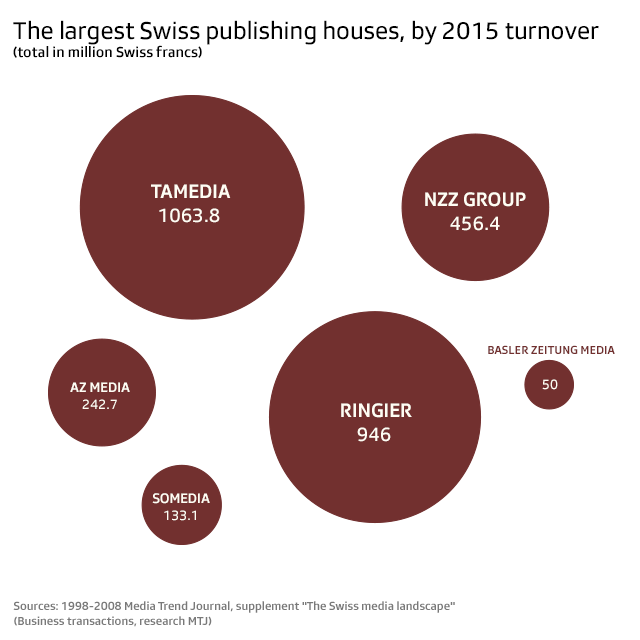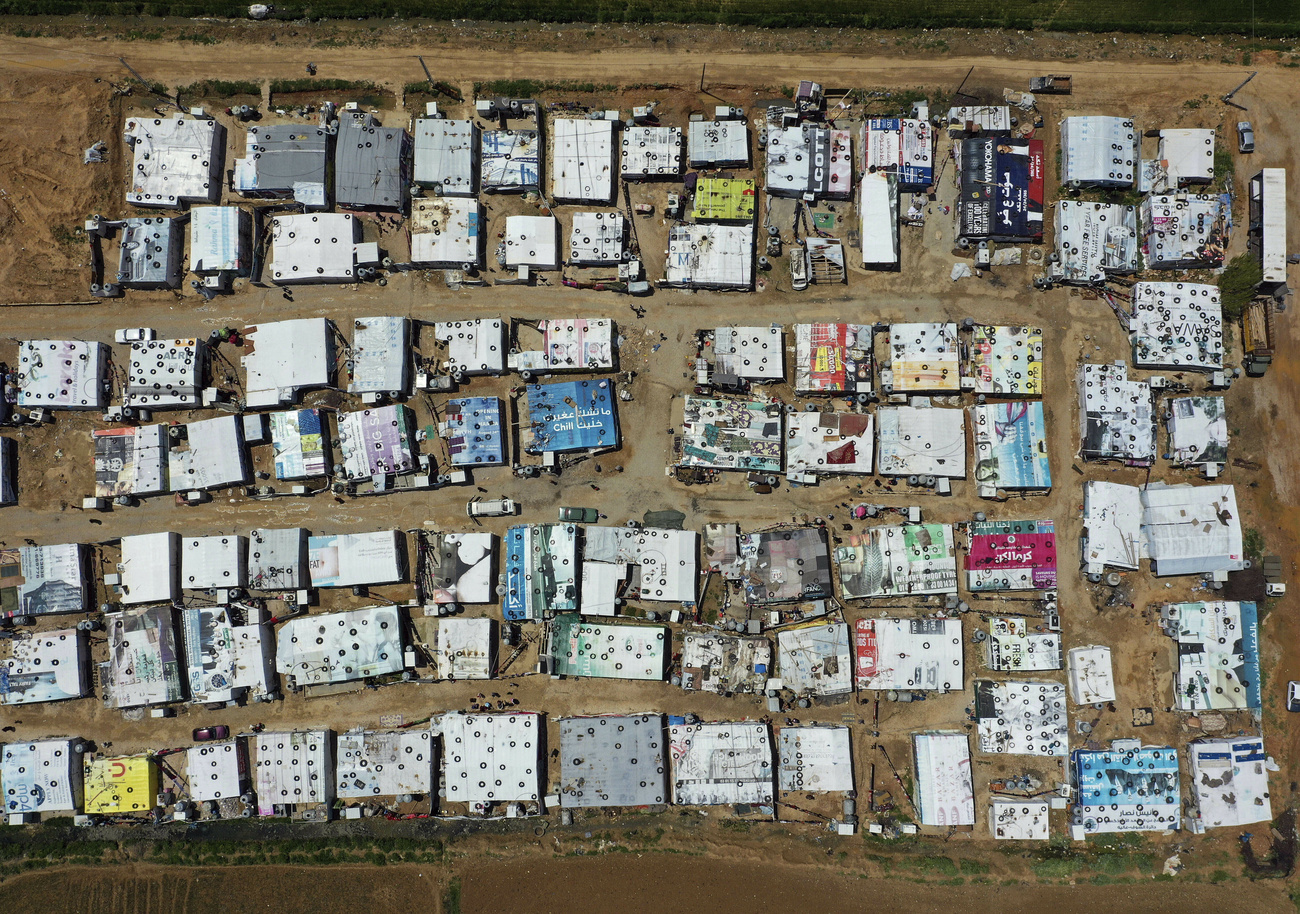
‘The media are the lifeblood of democracy’

These are tough times for the media industry as it faces cuts to jobs and publications. The news that L’Hebdo – the only weekly current affairs magazine in the French-speaking part of Switzerland – will close next month has sent shockwaves throughout the whole country. For media expert Mark Eisenegger, this loss represents a test for democracy and civil society.
In comparison to other countries, Switzerland boasts an extremely varied media landscape. But the number of newspapers and magazines has been in steady decline for years.
According to publishers, the main reason is falling subscriptions and lower advertising revenue, which increasingly disappears into the bank accounts of digital platforms such as Facebook and Google.
The latest victim is L’Hebdo magazine. Its publisher, Ringier-Axel Springer Switzerland, announced on Monday that it would publish the final edition on February 2 after 35 years in business. Now 37 jobs shared between L’Hebdo and the French-Swiss daily paper Le Temps are under threat.

“The fact that L’Hebdo, a quality publication, is disappearing is extremely regrettable for Switzerland and for the French-speaking region,” declared Mark Eisenegger, professor of communication science at Salzburg University in Austria. “A wide range of high-quality media publications is a prerequisite for a well-functioning democracy in Switzerland, where the general public frequently votes.”
swissinfo.ch: The loss of L’Hebdo magazine is major blow. A representative of the Swiss People’s Party was quick to suggest that the magazine Weltwoche, with its close links to the rightwing party, produce a French-speaking version. Does the ongoing concentration of publishers and titles in Switzerland, which seriously affects western Switzerland, open doors to populism?
Mark Eisenegger: The fact is that professional journalism – with few exceptions – has become a loss-making business. Today, investments in serious news journalism are mainly profitable for people with political interests.
swissinfo.ch: Publishers seem to be doing quite well financially. At the same time, they are destroying classic journalism by doing away with publications and making cuts in editorial offices. Is the frowned-upon concept of state media subsidies suddenly becoming a more effective solution, or should the fee system for public radio and television programmes by the Swiss Broadcasting Corporation – the parent company of swissinfo.ch – be extended?

M.E.: Today 75% of all new advertising money goes to the big tech companies. At the same time the prevailing free paper culture has become difficult to change. The media are not only relevant but also indispensable for a functioning democracy, yet the market for information journalism is under increasing pressure.
This calls for a system where public funds support information media. Scandinavian countries have demonstrated that direct public support for the media is possible without the state imposing restrictions on media independence or the freedom of the press being curbed.
swissinfo.ch: In very general terms, how important are the media for a direct democracy? And how has their role changed?
M.E.: Information media are the lifeline of democracy. They should also exercise a control function and keep a sharp eye on those in power.
This text is part of the #DearDemocracy, swissinfo.ch’s online platform for direct democracy.
They should act as a forum and help ensure that social problems are broadly discussed before they get out of hand.
The media also have a role in social integration, as we learn about our society from the media. All three of these functions are increasingly threatened if the resources for information journalism disappear.
How important are quality media for you. In what way do they help you shape your opinion?
Adapted from German by Simon Bradley and Urs Geiser

In compliance with the JTI standards
More: SWI swissinfo.ch certified by the Journalism Trust Initiative
































You can find an overview of ongoing debates with our journalists here . Please join us!
If you want to start a conversation about a topic raised in this article or want to report factual errors, email us at english@swissinfo.ch.